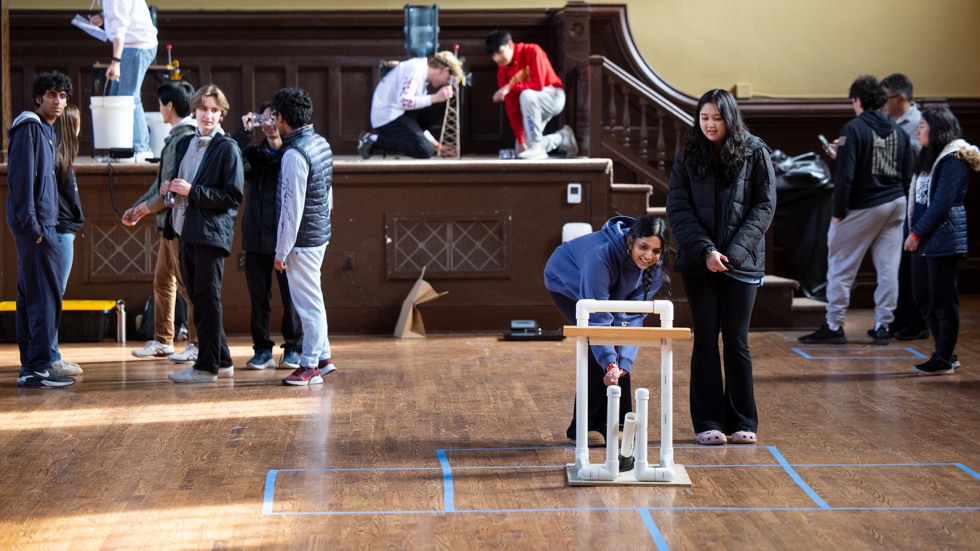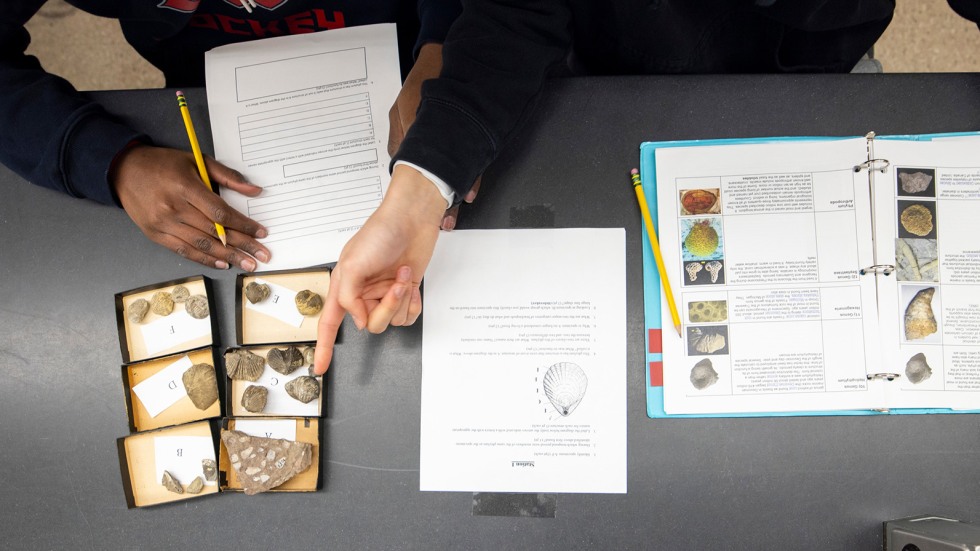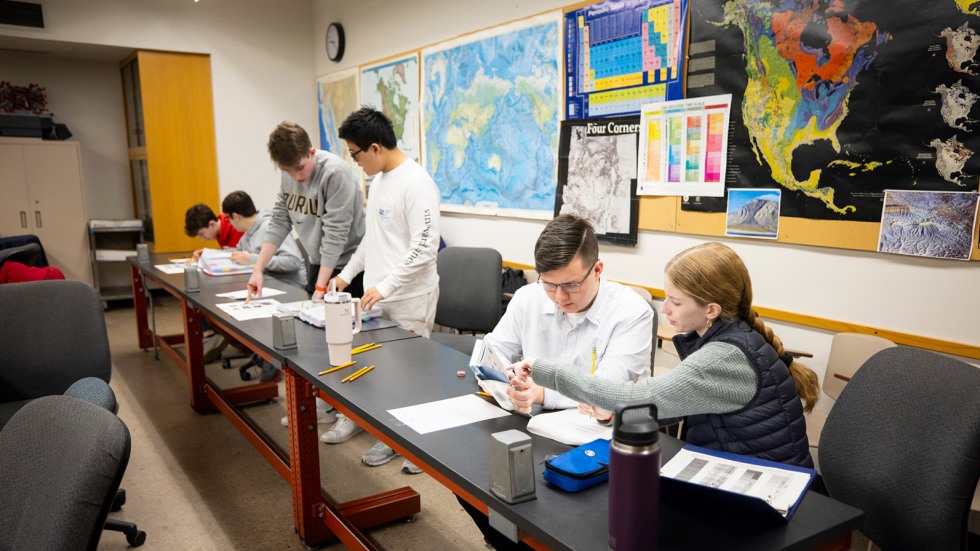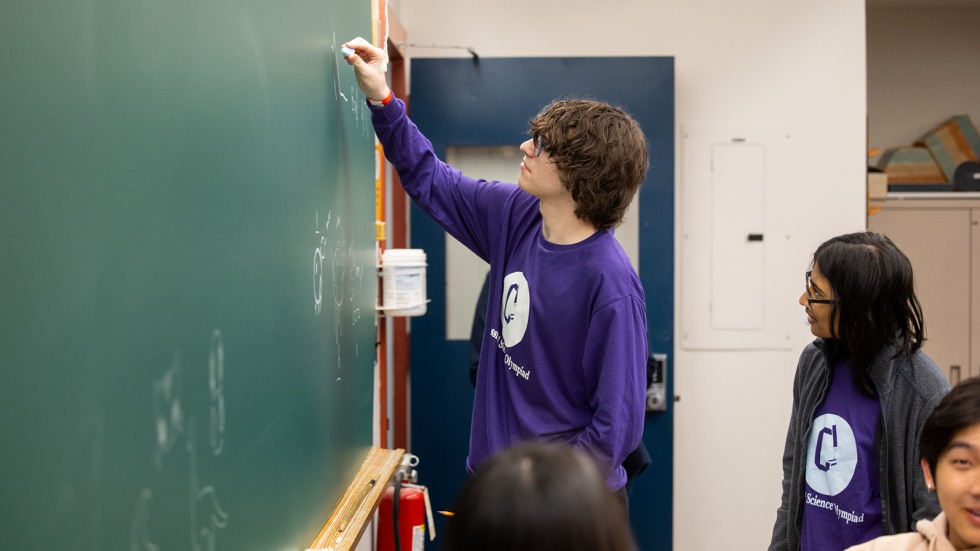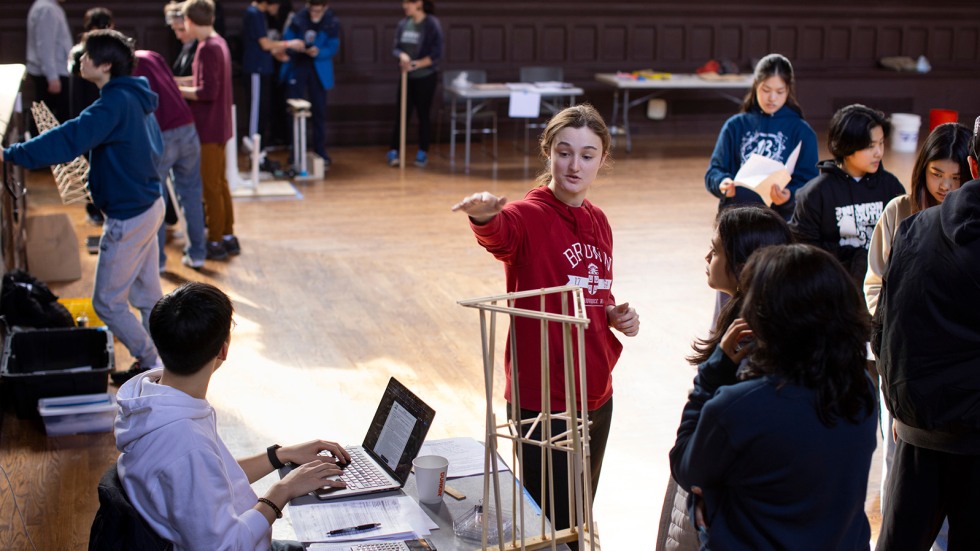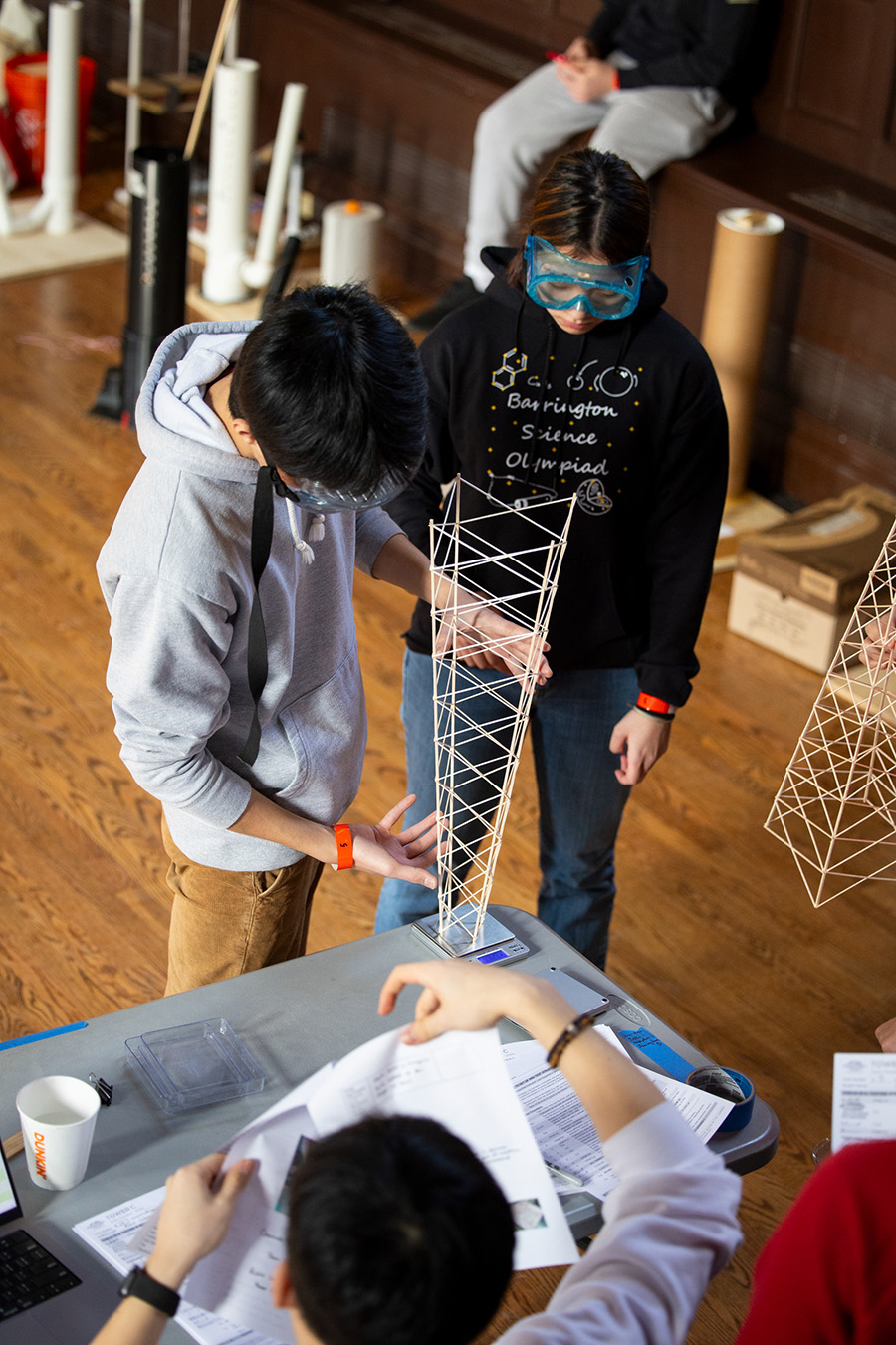PROVIDENCE, R.I. [Brown University] — College Hill in Providence buzzed with energy on Saturday, Feb. 10, as young aspiring scientists flooded Brown University's classrooms and laboratories, ready to put their knowledge to the test at the 7th Annual Brown Science Olympiad tournament.
The STEM competition — organized by Brown students and hosted on the University campus each February — welcomes nearly 1,000 high schoolers from across New England. Featuring a lineup of 23 diverse challenges, the single-day academic tournament integrates written assessments with hands-on design and build tasks. Contestants immerse themselves in various scientific disciplines, from fundamental subjects like biology, chemistry and physics to specialized areas such as astronomy, forensics and robotics. Throughout the event, local students engage in a day filled with curiosity, creativity and camaraderie, exploring the marvels of science and pushing the boundaries of their intellectual prowess.
Luke Randall, a senior concentrating in geology-chemistry at Brown and director of the Brown Science Olympiad student organization, said that the practice invitational started in 2018 to offer Rhode Island teams a new opportunity to compete before the Science Olympiad state tournament, which takes place each April at Rhode Island College.
Rhode Island's Science Olympiad landscape differs from other states in that it exclusively hosts the state tournament without additional qualifying competitions. This setup, while unique, can pose challenges for local teams as they prepare for the national tournament in May, Randall said.
"With the Brown invitational, we're providing Rhode Island's Science Olympiad teams another opportunity to hone their skills before the state championship," Randall said. "Many of our local teams face challenges competing against bigger teams in the state or national tournaments. We focus on leveling the playing field, giving Rhode Island teams a dedicated space to practice and compete in a low-stakes, stress-free environment. By fostering a more competitive atmosphere in Rhode Island, we hope to inspire a greater passion for science among young students across the state."
